- The purpose of Lanier Technical College (LTC) is to meet the workforce development needs of the area by providing technical and adult education to support the economic development and well-being of the people, communities, and companies of Banks, Barrow, Dawson, Forsyth, Hall, Jackson, and Lumpkin counties. LTC prepares people for successful work; therefore, the College plays a major role in their life-long education. It improves the intellectual and technical skills of area residents and prepares students and trainees for jobs by providing adult education, general academic and technical education, customized business and industrial training, economic development services, and continuing education. The primary educational purpose of the College is to provide high quality technical certificate of credit, technical diploma, and associate degree programs to meet the needs of area students, employers, and economic developers. Technical education is offered using up-to-date instruction, industry-standard equipment, and work-based learning delivered through traditional and distance methods and media. Lanier Technical College (LTC) will be recognized as the foremost resource for workforce development and job growth in our communities. LTC will create a multiple-access educational continuum for those aspiring to careers in technical professions. LTC will offer a supportive, student-friendly learning environment. LTC will be widely recognized as the foremost provider of healthcare and energy workforce training in northeast Georgia and will support Georgia’s other current and emerging strategic industries with training and services. LTC will strive to provide ever-improving collegiate quality, and to increase capacity to match student and business demands.
School Highlights
Lanier Technical College serves 7,626 students (20% of students are full-time).
The college's student:teacher ratio of 22:1 is higher than the state community college average of 18:1.
Minority enrollment is 42% of the student body (majority Hispanic), which is less than the state average of 61%.
Quick Stats (2025)
- Enrollment: 7,626 students
- In-state tuition: $3,164
- Out-state tuition: $5,834
- Student:teacher ratio: 22:1
- Minority enrollment: 42%
- Source: Integrated Postsecondary Education Data System (IPEDS)
Top Rankings
Lanier Technical College ranks among the top 20% of public schools in Georgia for:
Category
Attribute
Community Size
School Overview
The teacher population of 353 teachers has stayed relatively flat over five years.
Lanier Technical College
(GA) Community College Avg.
Carnegie Classification
Associate's Colleges: High Career & Technical-Mixed Traditional/Nontraditional
Associates--Public Rural-serving Medium
Institution Level
At least 2 but less than 4 years
At least 2 but less than 4 years
Institution Control
Public
Public
Total Faculty
353 staff
209 staff
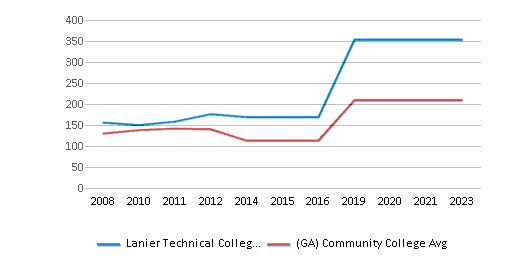
School Calendar
Student Body
The student population of Lanier Technical College has grown by 65% over five years.
The student:teacher ratio of 22:1 has increased from 14:1 over five years.
The Lanier Technical College diversity score of 0.59 is less than the state average of 0.71. The school's diversity has grown by 10% over five years.
Total Enrollment
7,626 students
2,242 students
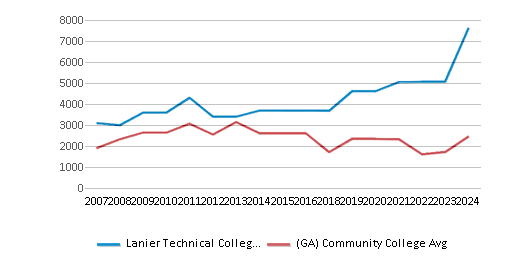
Student : Teacher Ratio
22:1
18:1
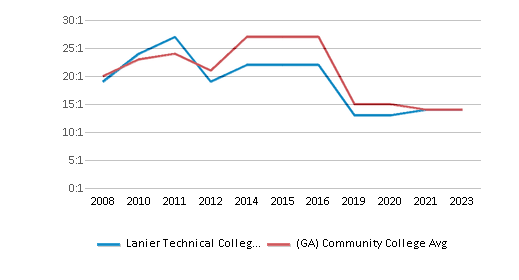
# Full-Time Students
1,556 students
882 students
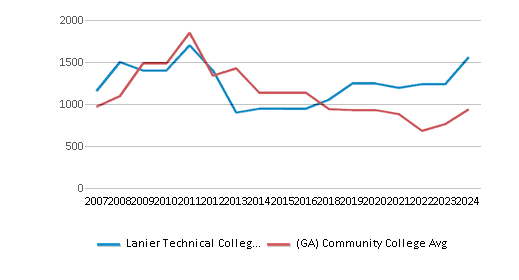
# Part-Time Students
6,070 students
1,722 students
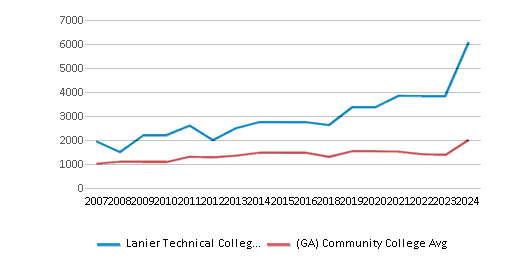
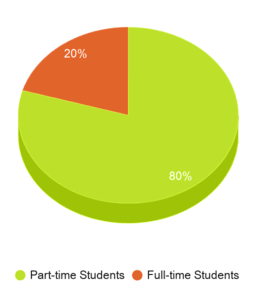
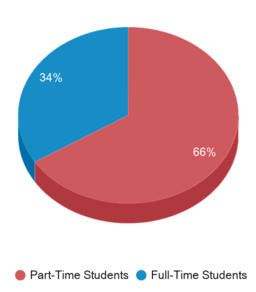
# Enrollment Undergraduate
762 students
299 students
# Full-Time Undergraduate Students
1,556 students
929 students
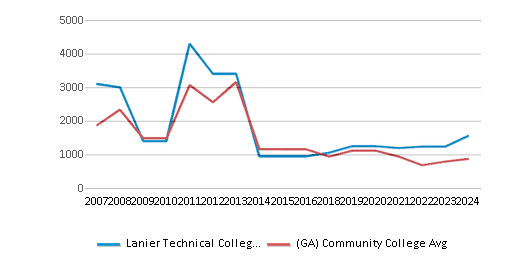
# Full-Time Graduate Students
n/a
87 students
# Part-Time Undergraduate Students
6,070 students
1,891 students
# Part-Time Graduate Students
n/a
53 students
Total Dormitory Capacity
n/a
654 students
% American Indian/Alaskan
n/a
n/a
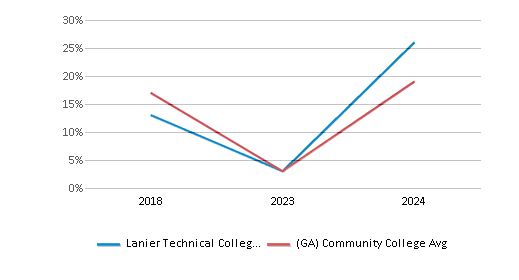
% Asian
4%
4%
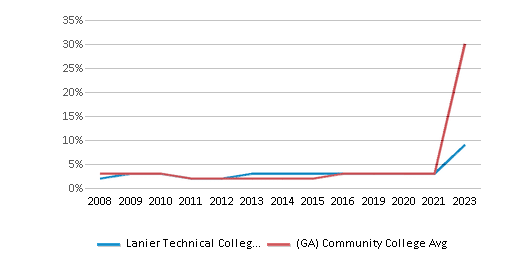
% Hispanic
25%
10%
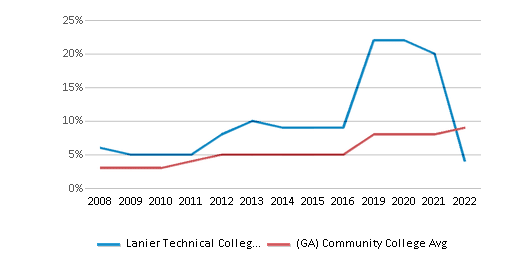
% Black
9%
35%
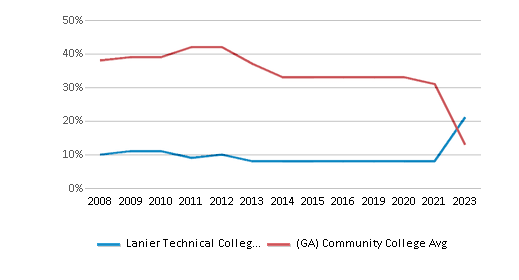
% White
58%
39%
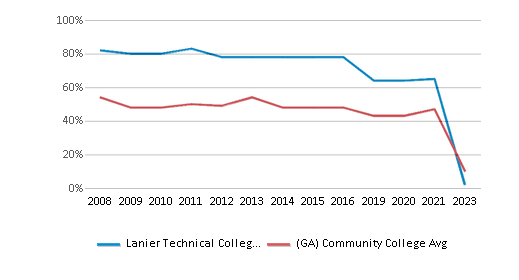
% Hawaiian
n/a
1%
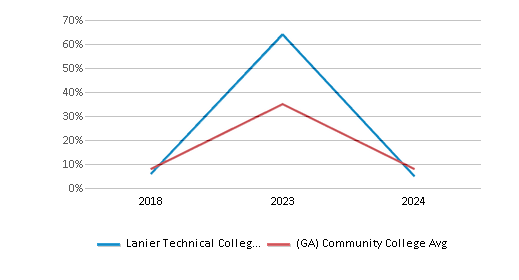
% Two or more races
3%
3%
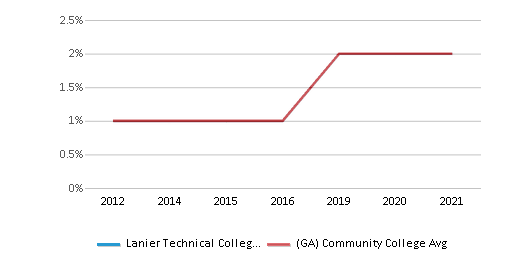
% Non Resident races
1%
1%
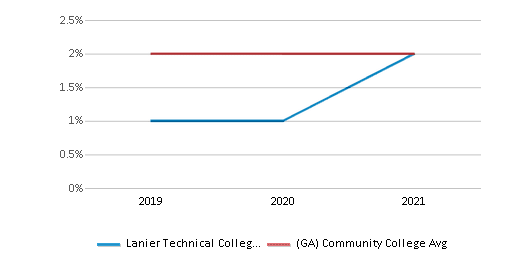
% Unknown races
n/a
7%
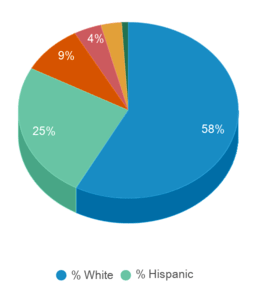
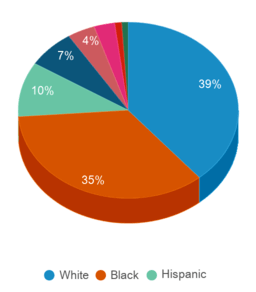
Diversity Score
0.59
0.71
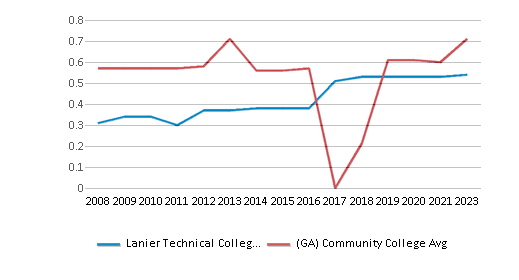
College Completion Rate (Students who graduate in less than 4 years)
0.3727%
0.4279%
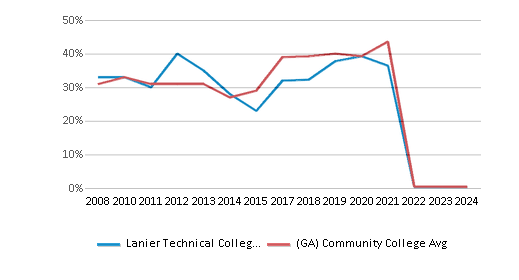
College Completion Rate (Students who graduate in 4 years or more than 4 years)
n/a
0.2368%
Average Graduate Earnings (10 Years)
$26,800
$29,500
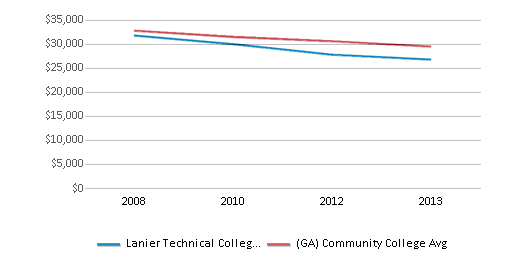
Tuition and Acceptance Rate
The public in-state tuition of $3,164 is more than the state average of $3,120. The in-state tuition has declined by 13% over four years.
The public out-state tuition of $5,834 is less than the state average of $6,995. The out-state tuition has declined by 12% over four years.
In-State Tuition Fees
$3,164
$3,120
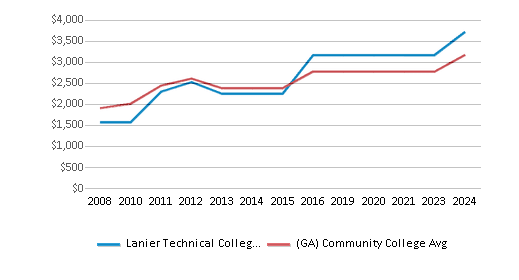
Out-State Tuition Fees
$5,834
$6,995
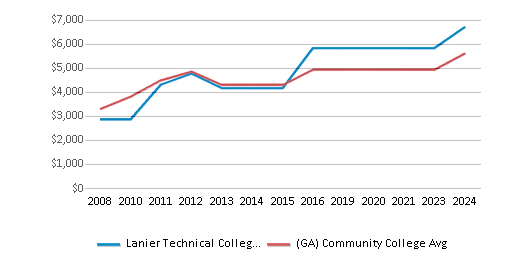
% Students Receiving Some Financial Aid
83%
93%
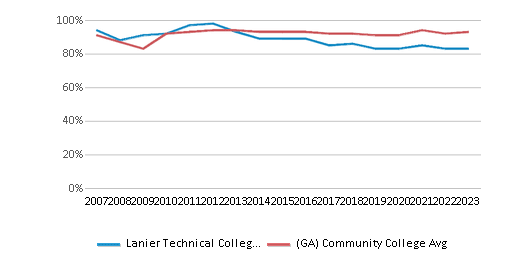
Median Debt for Graduates
n/a
$12,139
Median Debt for Dropouts
n/a
$5,500
Acceptance Rate
n/a
75%
SAT Reading
n/a
465
SAT Math
n/a
450
SAT Writing
n/a
465
ACT Composite
n/a
18
ACT English
n/a
18
ACT Math
n/a
18
ACT Writing
n/a
7
Source: 2024 (or latest year available) Integrated Postsecondary Education Data System (IPEDS)
Frequently Asked Questions
How much does Lanier Technical College cost?
Lanier Technical College's tuition is approximately $3,164 for In-State students and $5,834 for Out-State students.
What is Lanier Technical College's ranking?
Lanier Technical College ranks among the top 20% of community college in Georgia for: Largest student body.
Recent Articles

Obtaining Your Bachelor's Degree at a Community College
Explore the evolving landscape of community colleges offering bachelor's degrees, addressing affordability, accessibility, and workforce needs.

A to Z of Community College Certificates and Courses
From business and healthcare to technology and skilled trades, the article showcases the breadth of options available to students seeking to enhance their knowledge, develop new skills, or pursue career advancement.

What is a Community College?
This comprehensive guide explains what a community college is, its history, and its role in higher education. It covers the types of programs offered, differences from four-year colleges, benefits of attending, and important considerations for prospective students, providing valuable insights for those exploring educational options.









